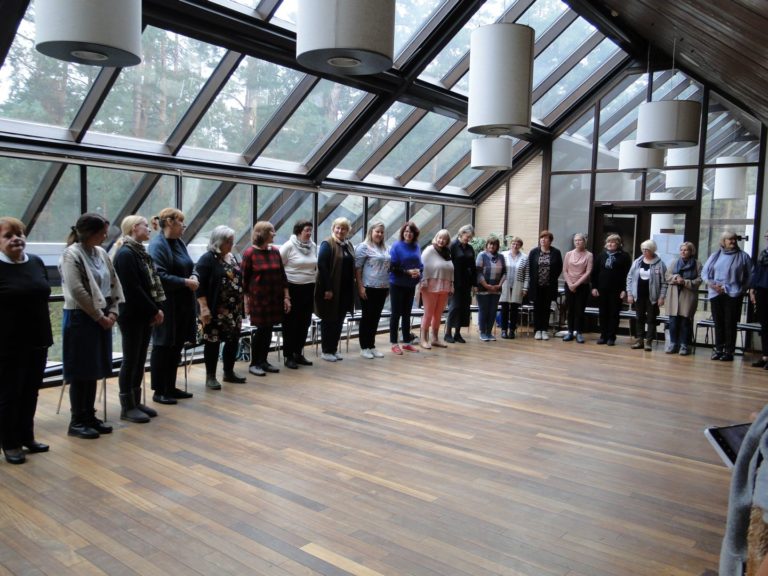Story-telling art, which is widespread in the world, is rapidly gaining popularity in Lithuania. Storries enter the Lithuanian scenes, are used in various forms in the activities of more and more institutions. Storry-telling methods help to create a safe, attractive space for the participation of different target groups, networking, problem solving, self-expression, learning. In order to offer its visitors an even more engaging, richer range of services, using the experience of foreign countries, the public libraries of the Panevėžys region have begun to actively delve into the application of narrative methods in library activities.
September 20-24 Panevėžys County Gabrielė Petkevičaitė-Bitė Public Library organized trainings on the development of educational storytelling programs for librarians of Panevėžys region, implementing the project “Development of a Storytelling Art and Method Model for Lithuanian Libraries” funded by Nordic Culture Point. The training was led by lecturers: professional storyteller, educator, project manager Rose Marie Lindfors from Nordic Storytelling Center (Sweden) and professional storyteller, artist Tiril Bryn (Norway). According to the guests, such active interest and involvement of Lithuanian librarians in training in the development of the narrative art method is an exceptional phenomenon in the world of narrators.
Energetic and creative atmosphere dispelled the fear
The week-long training in Molėtai aimed to bring together teams of library professionals and provide them with the knowledge and skills needed to design and run educational storytelling programs. The training program was based on the narrator’s competency development model developed by the European Narrative Federation (FEST). The week did not appear long for the participants as the agenda was really dynamic. The theoretical part and the practice of tasks suitable for storytelling education were replaced by calm meditation in nature, listening to fairy tales or stories, walks in the forest, looking for inspiration and narrative characters, and then working energetically and creatively in groups.
The result of the work of the teams of library specialists is the creation of five storytelling programs, which will be adapted to different audiences and different age groups in the libraries of Panevėžys region. For each educational storytelling program, toolkits or scenographic elements will be created to help the educator-narrator tell the story and engage the audience. The sets of the story will be created by scenographer and educator Neringa Minkevičienė in response to the needs of the training participants.
Participants unanimously testified that the training exceeded their expectations. While many arrived somewhat fleeing new challenges, the supportive atmosphere created by the lecturers and colleagues during the training course allowed everyone to relax and enjoy the new discoveries. Librarian Lina Kučinskienė describes her experience as follows: “During the training I seemed to dive into an unknown lake, gained a lot of knowledge, met amazing people and inspiring lecturers. I look forward to getting to work and applying the knowledge I have gained. ”
Lecturers invited to notice stories all around
Norwegian-born T. Bryn says she felt the pull of stories very early on. She was curious about how people thought and perceived the world when there were no rational explanations for the phenomena around us. The narrator chose to study for a master’s degree in cultural history and delved into the art of fairy tales. Later, realizing that it was possible to study not only stories but also the genre of storytelling itself, she plunged into the field. “People have always told stories. When you use creativity and give your story an unexpected perspective, you can open other person’s heart through a story, surprise or just make them laugh. I want to tell warm, engaging stories that combine contemporary issues with a narrative of cultural heritage and help answer questions about who I am as an individual, who we are as a society and humanity, ”says the lecturer. According to her, story-telling is a widely used tool for everyone who works with different groups of people. This tool not only diversifies the range of services, but also unites the community. For anyone starting to learn the art of storytelling, Bryn suggests imagining that the process is a journey, and life is like a fairy tale full of unexpected plots.
Narrator R. M. Lindfors studied drama and, while creating her first work, noticed how stories and tales help to connect with children. She admits that she herself was shy as a child, so when she met children, who were timid, silent, it ignited the desire in her to give them a voice. According to the lecturer, the story is a great way to discover your unique voice in life and society and to strengthen community spirit. Lecturer comes from Sweden, which has a long and strong storytelling tradition. She is glad that the genre of storytelling, once overshadowed by television, is once again gaining popularity and even becoming a stage art form. R. M. Lindfors says she has been working with librarians for many years helping them bring life to book stories. According to her, the trainings taking place in Lithuania are the first when librarians create storytelling programs themselves, so she and the entire staff of the Nordic Storytelling Center are looking forward to the results of this project. Asked what is most important to become a good narrator, the lecturer says that first you need to be a good listener, open your senses and notice the stories that are intertwined all around.
High ambitions
Currently, libraries of Panevėžys region are studying the application of narrative methods and will use it to diversify their services. From 2021 November to 2022 It is planned to hold 40 storytelling events for visitors: children and youth, adults and the elderly in the libraries of Panevėžys region. The librarians will present the experience gained during the project to their partners in Sweden, and later in a conference for librarians from all over the country. Jurgita Bugailiškienė, director of the Gabrielė Petkevičaitė-Bitė Public Library of Panevėžys County, hopes that the emerging network of storytelling libraries will strengthen and expand throughout the country.
Prepared by Virginija Švedienė and Aušra Narbutė
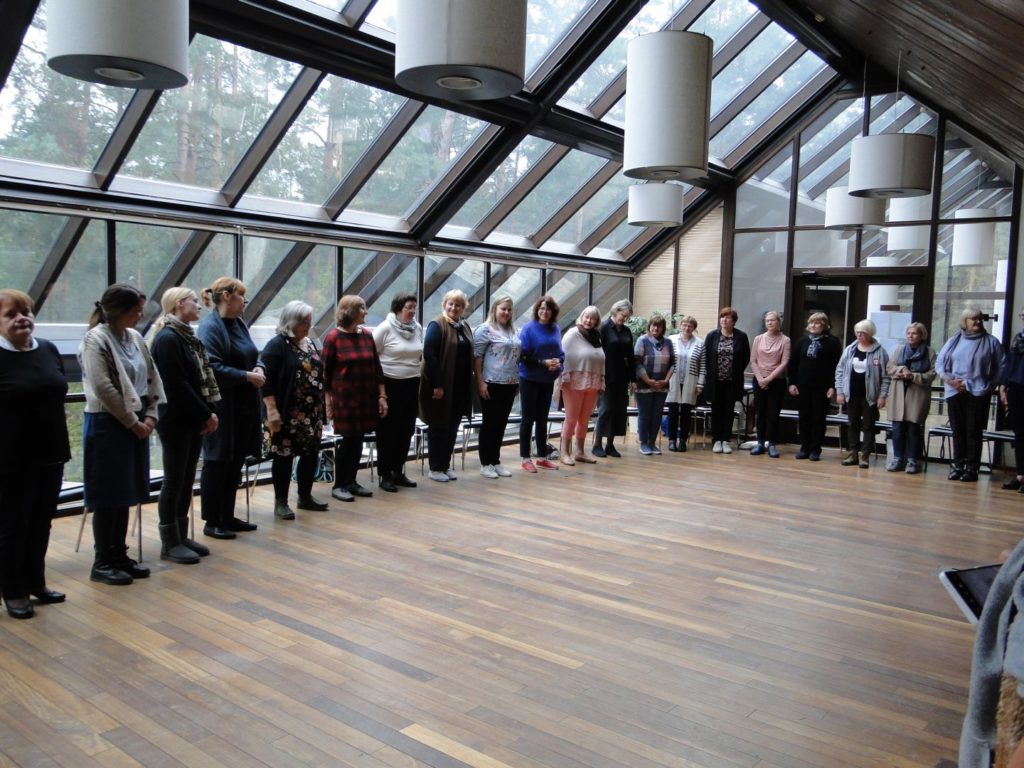
Training in Molėtai 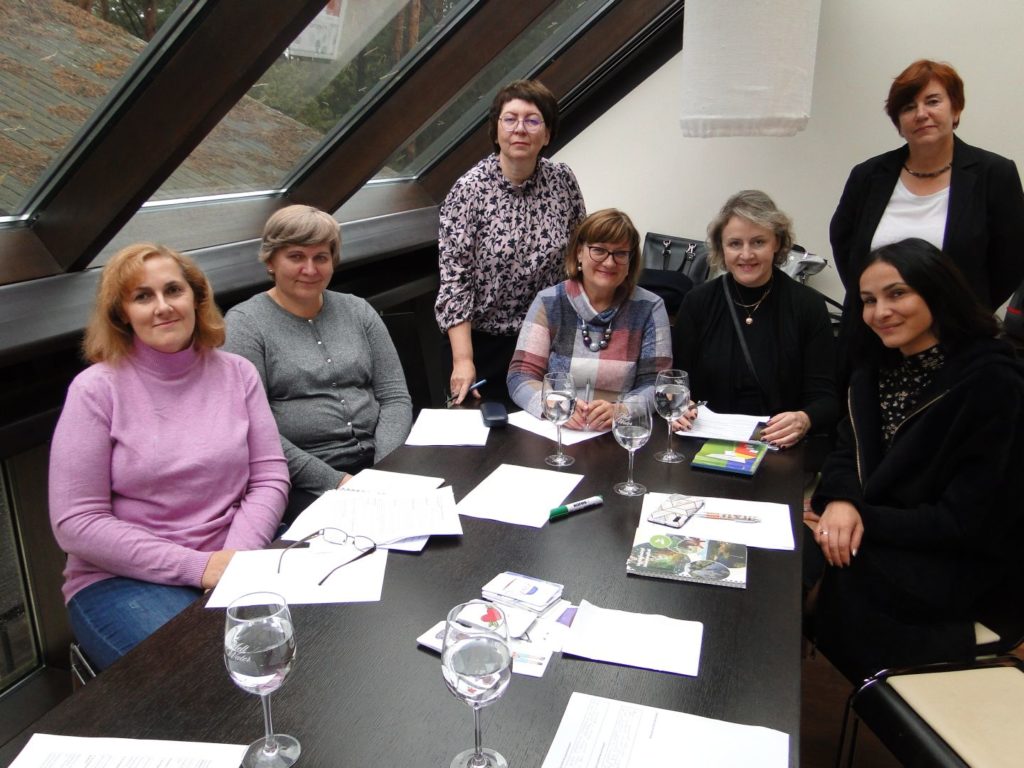
Training in Molėtai 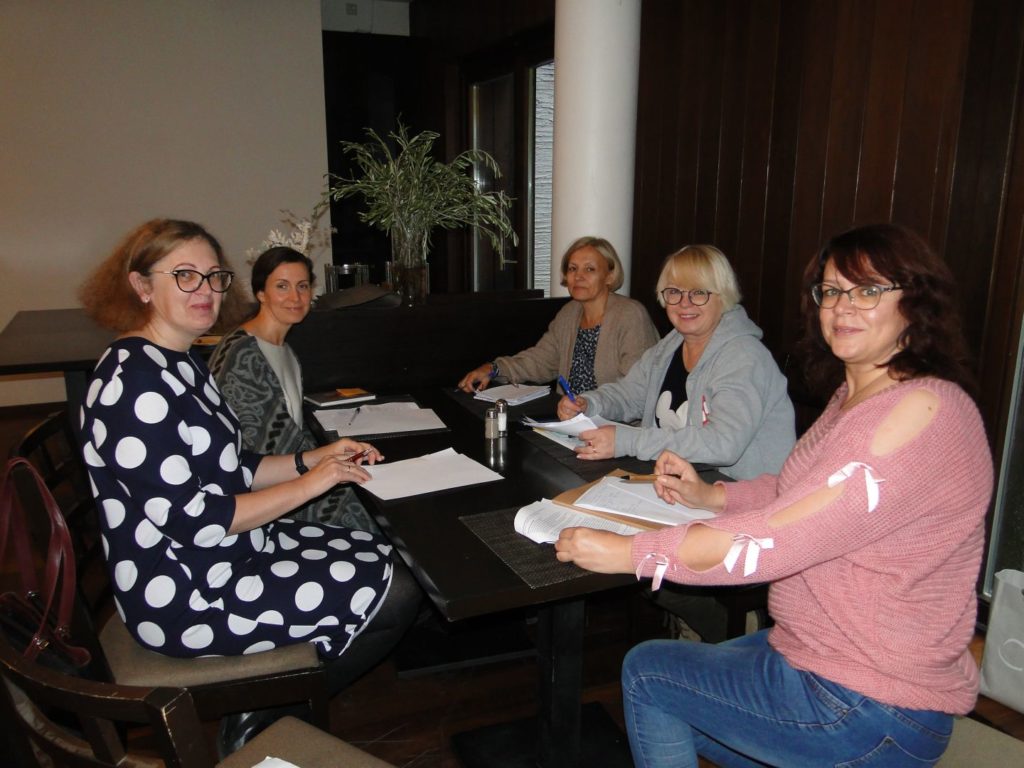
Training in Molėtai 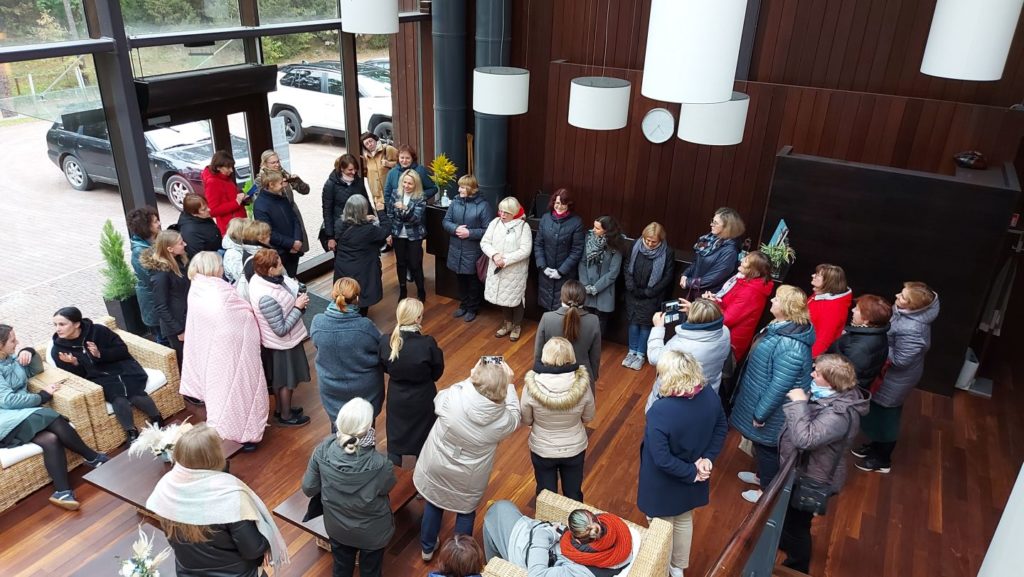
Training in Molėtai 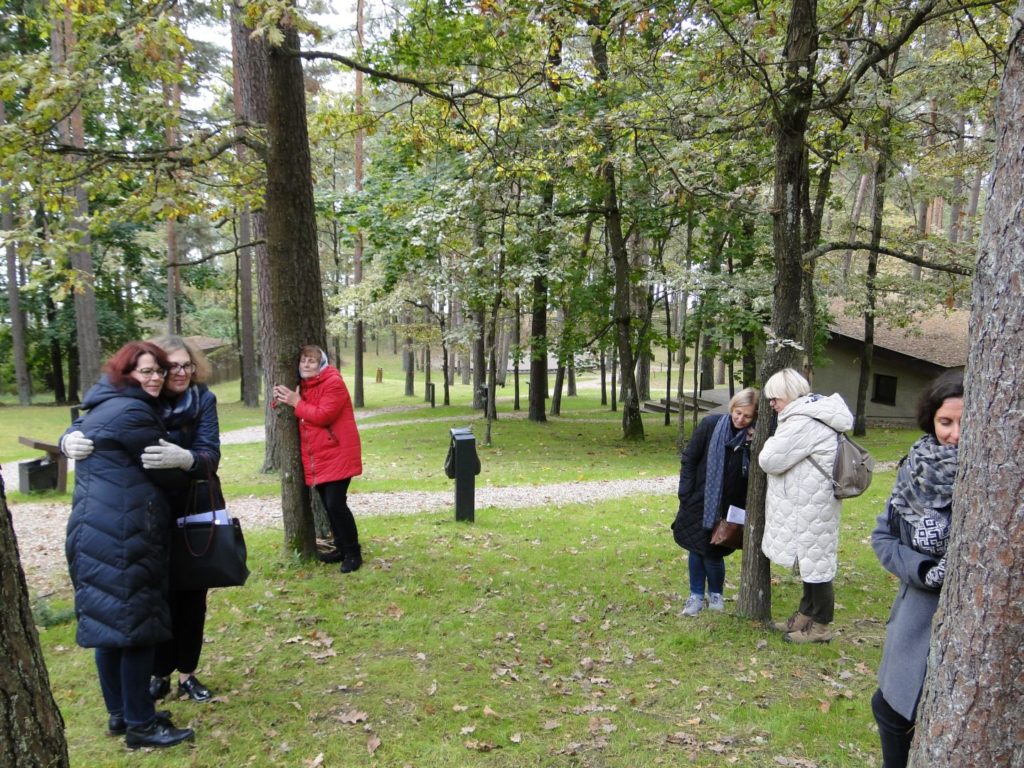
Training in Molėtai
The project is funded by


